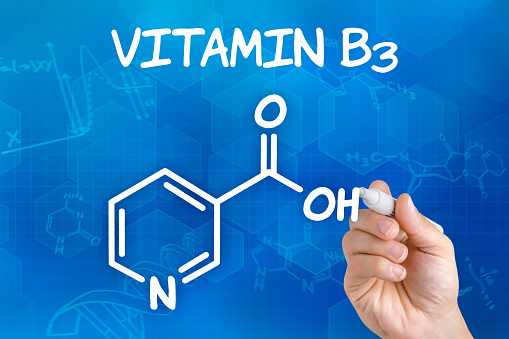 Taking an inexpensive B-vitamin supplement twice daily can drastically reduce the risk of some skin cancers, according to a new study.
Taking an inexpensive B-vitamin supplement twice daily can drastically reduce the risk of some skin cancers, according to a new study.
The study, published in the New England Journal of Medicine, found that nicotinamide, a type of vitamin B3, reduced the chances of developing non-melanoma skin cancer in high-risk patients.
Non-melanoma skin cancer is the most common type of cancer, affecting an estimated two million Americans. Sun damage and exposure to UV light are risk factors, particularly for fair-skinned people. While most incidences of this skin cancer can be treated easily and successfully, there are still about 2,000 deaths per year attributed to non-melanoma skin cancers.
In the study, researchers from the University of Sydney studied 386 people who had two or more incidents of non-melanoma skin cancer within the last five years. These people are considered at high risk for developing skin cancer again. The researchers split them into two groups: one group received a twice-daily supplement of nicotinamide and one group took a placebo.
After one year, the high-risk patients taking the B3 vitamin were 23% less likely to have developed skin cancer than the patients who took the placebo. Among those who took the placebo, 38% ended up developing skin cancer again.
The results showed that the B3 vitamin supplement was effective at lowering the risk of non-melanoma skin cancer.
“This is the first clear evidence that we can reduce skin cancers using a simple vitamin, together with sensible sun protections,” said Dr. Diona Damian, lead author of the study.
Nicotinamide is regularly found in meat, nuts, and fish, as well as some fruits and vegetables.
Nicotinamide supplements are cheap and can be bought in most health-food stores or pharmacies. One months’ worth of the supplement costs about $10.00. Previous studies have suggested the vitamin can help repair damaged DNA and boost the skin’s immune system.
“It’s safe, it’s almost obscenely inexpensive, and it’s already widely commercially available,” said Damian. There were no notable reported side effects with taking the supplement.
Other B-vitamins, including other forms of vitamin B3, have not been found to have the same benefits related to skin cancer. The study only confirmed the positive benefits of nicotinamide.
The benefits from taking the supplement were seen quickly. “This reduction in skin cancers seemed to start as early as the first three-month visit,” said Damian. As well, the group taking the nicotinamide had a 20% reduction in scaly skin patches after nine months of taking the supplement. These skin patches commonly become skin cancer.
However, the positive benefits of nicotinamide were only seen while people were taking the supplement. Stopping the supplement resulted in a loss of all benefits. According to Damian, “When people stopped taking their tablets after 12 months, the benefit was no longer seen. In other words, you need to continue taking the tablets in order for them to be effective.”
The study’s findings indicate that along with sun protection, taking a twice-daily nicotinamide supplement can be effective in reducing risk for those who have had skin cancer. Further research will have to be done to confirm if there are any benefits for people without a history of skin cancer.
Sources for Today’s Article:
“Skin Cancer (Non-Melanoma): Statistics,” Cancer.net; http://www.cancer.net/cancer-types/skin-cancer-non-melanoma/statistics, last accessed October 27, 2015.
Carter, L., “Vitamin B3 can lower risk of skin cancer, researchers find,” ABC News web site, October 21, 2015; http://www.abc.net.au/news/2015-10-22/vitamin-b3-could-prevent-some-forms-of-skin-cancer/6877042.
Thompson, D., “B Vitamin May Help Ward Off Some Skin Cancers,” WebMD web site, October 21, 2015; http://www.webmd.com/melanoma-skin-cancer/news/20151021/b-vitamin-may-help-ward-off-some-skin-cancers.
Venosa, A., “Risk For Skin Cancer May “Significantly’ Lower Following Year of Vitamin B-Derived Treatment,” Medical Daily web site, October 24, 2015; http://www.medicaldaily.com/risk-skin-cancer-may-significantly-lower-following-year-vitamin-b-derived-treatment-358802.
